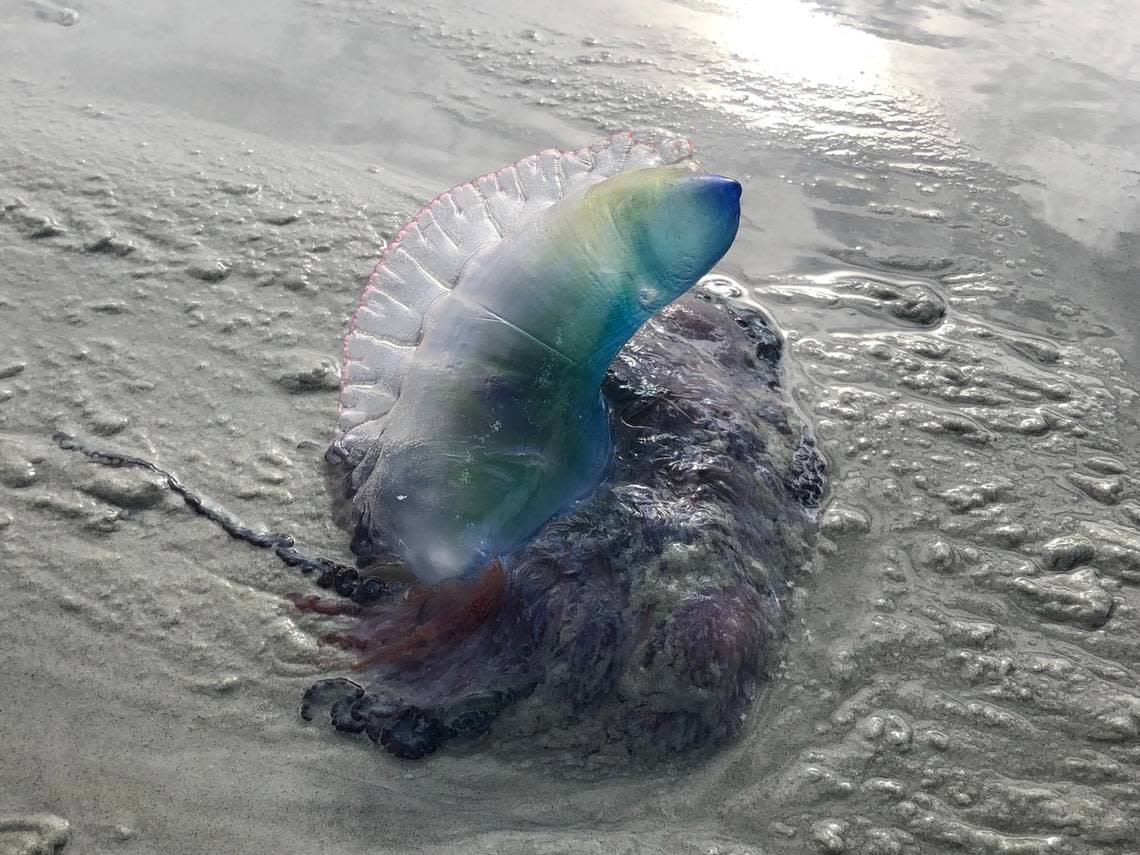Toxin-carrying creature popping up on GA, NC beaches. Have they washed up on Hilton Head?

While causing a stir on the coasts of Georgia and North Carolina, the notoriously beautiful and threatening tentacled spectacle hasn’t washed up along Hilton Head Island beaches this year so far.
And that’s a good thing, because even when dead, the creature can pack a punch.
Portuguese man-o’-war, what many mistake as jellyfish, have iridescent floats and inky-colored tentacles that can reach up to 100 feet. The species known as a siphonophore, which is made up of several specialized organisms working together, got the name from its resemblance to an 18th century Portuguese warship under full sail, according to the National Oceanic and Atmospheric Administration.
But don’t underestimate looks and lore.
The tentacles of a man-o’-war contain stinging nematocysts, NOAA said, which are microscopic capsules loaded with coiled, barbed tubes that deliver venom. The toxin is capable of paralyzing and killing small fish and crustaceans.
For humans, the touch of a tentacle can cause severe pain and reactions, and welts can form on exposed skin.
Alert of sightings
Near the South Carolina-Georgia state line at Georgia’s well-known Tybee Island, officials warned the public Wednesday that the creatures had been sighted on the beach.
“These creatures may look fascinating, but they can be extremely dangerous,” read a Facebook post by the City of Tybee Island. “Even dead or washed-up Man O’ Wars can still sting, so please be cautious!”
Along North Carolina beaches this month, federal officials issued a marine life warning notifying that the creatures have been spotted on the beaches of a coastal town in Carteret County, according to ABC affiliate WCTI.
Good news for Hilton Head, Shore Beach Service’s operations manager Mike Wagner said there had not been local reports of man-o’-war sightings. Wagner said if there is a sighting to alert the service so it can remove the creature. The service will collect and bury the washed-up siphonophore to ensure there’s no threat to the public.
While it can be difficult to parse what stung someone in the water, whether a man-o’-war or jellyfish, the treatment is similar.
“You’ve heard all the old wives tales, and some people swear by them,” Wagner said. “But there’s not a lot of scientific proof with that stuff.”
A common tall-tale is urinating on the stung area. But it’s best to listen to professionals and first rinse off the stinging cells with saltwater. Anything else could potentially make it worse, Wagner said.
He suggested follow-up treatment with a doctor based on the sting severity.

